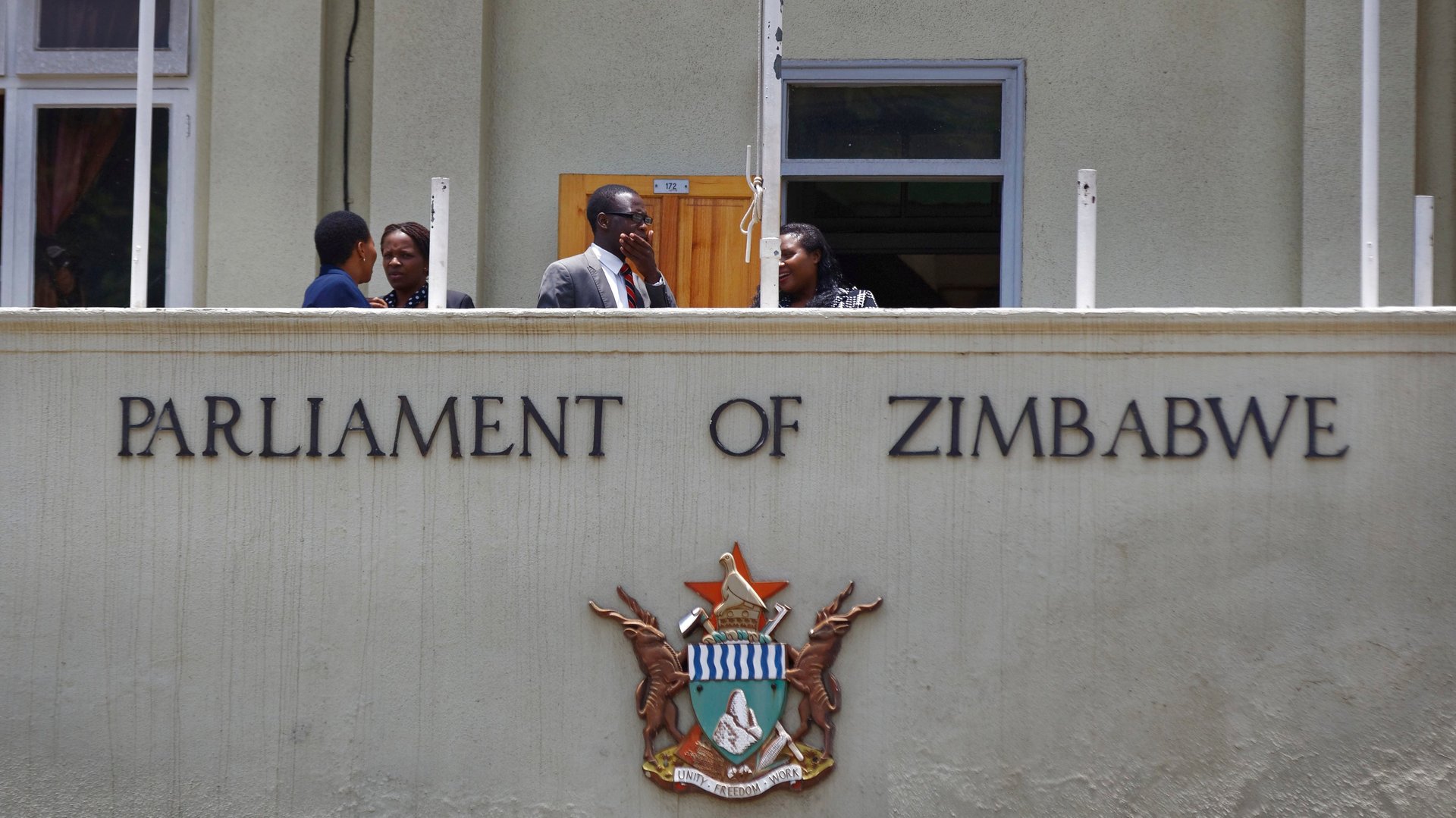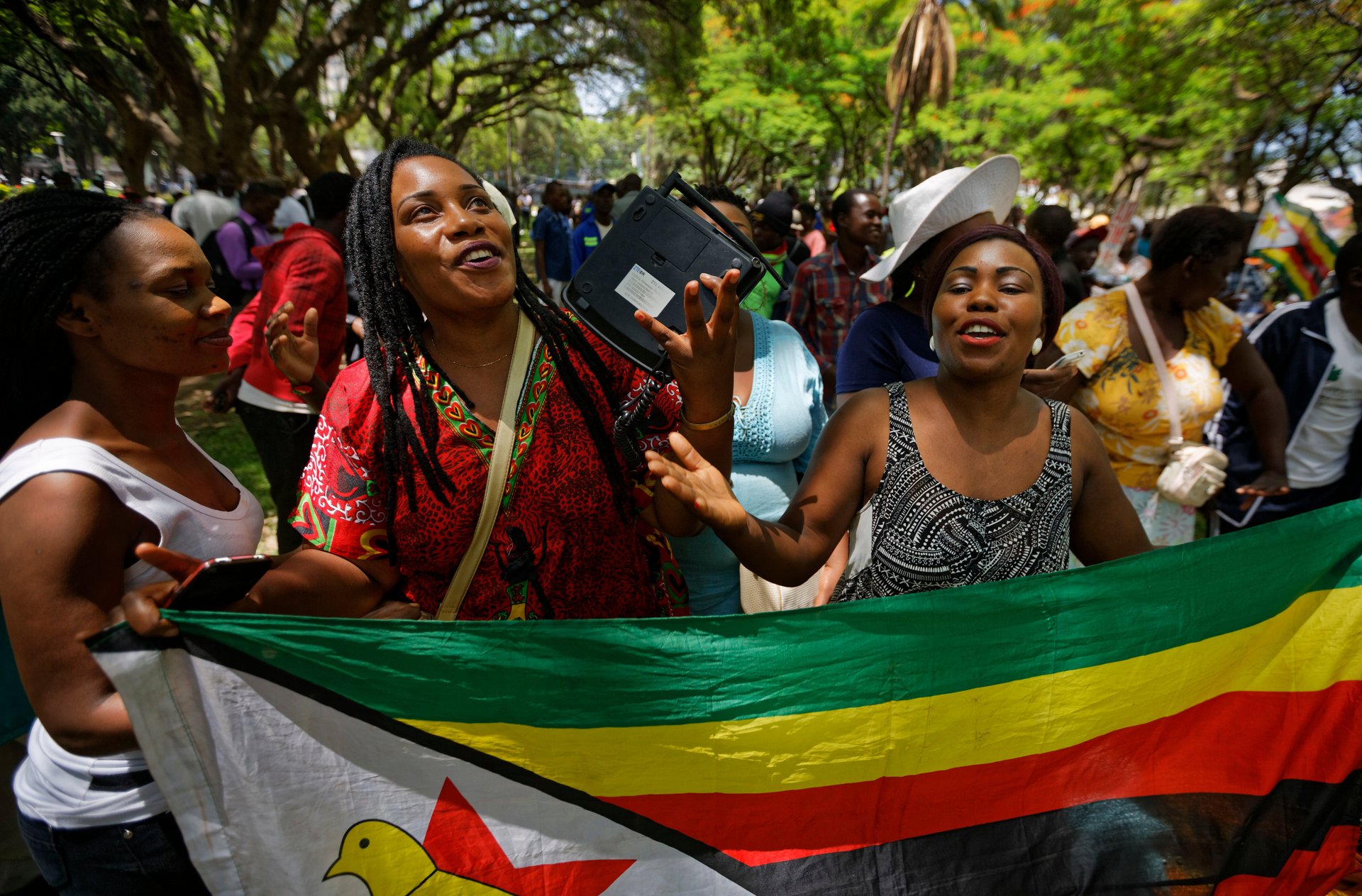Robert Mugabe’s own political party is about to impeach him
Robert Mugabe called a cabinet meeting on Nov. 21 and less than a quarter of his ministers showed up, signaling the waning power the longtime leader is desperately clinging to.


Robert Mugabe called a cabinet meeting on Nov. 21 and less than a quarter of his ministers showed up, signaling the waning power the longtime leader is desperately clinging to.
Instead, there were so many people gathered to witness impeachment proceedings against Mugabe that parliament was deemed to small. almost all members of parliament were present at a special session called to begin impeaching Mugabe.
The ruling Zanu-PF began instituting the impeachment process after the embattled president failed to meet their demand to step down by noon on Monday. Backed by the ruling party, opposition party the Movement for Democratic Change, tabled the motion. The motion is reportedly based on Mugabe’s advance age—93 years— and allowing his wife to “usurp power.” Then MPs, media and crowds moved to the larger Harare International Conference Centre to continue the process.

Outside parliament and making their way to the new venue, hundreds of ordinary Zimbabweans gathered, chanting “Mugabe must go!” Main opposition leader Morgan Tsvangirai addressed the crowd, calling for a free and fair election in the coming months, without Mugabe’s name on the ballot—which would be a first for independent Zimbabwe.
On Sunday (Nov. 19), Zanu-PF fired Mugabe as president of the party, meaning he should have stepped down as state president. Instead, Mugabe barely acknowledged the extraordinary party meeting that happened just a few hours earlier. He announced his intention, to preside over Zanu-PF’s elective conference in December.
In a televised address, Mugabe spoke of the economy and reconciliation, but showed no signs of stepping down. But, with reports emerging that he was “munching maize” and discussing anthropology as thousands marched toward his home on Saturday (Nov. 18), it’s no surprise.
In a lengthy statement on Nov. 21, Mnangagwa revealed that Mugabe reached out to him but that he refused to return to the country, fearing for his life. The current political impasse is between Mugabe and the citizenry, not between political leaders and Mugabe could either leave with dignity, or “suffer humiliation because definitely the will of the people will prevail,” he said. Once a loyal aide to Mugabe, this stance is likely to further endear Mnangagwa to voters next year.